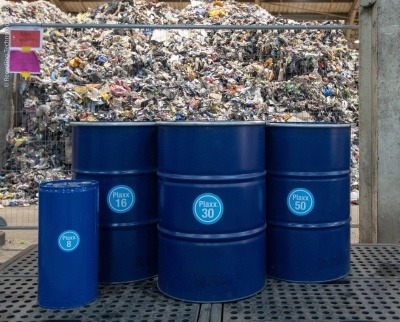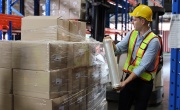Global consortium to advance chemical recycling in France
Recycling Technologies has joined forces with energy company Total and global brands Nestlé and Mars to develop an industrial chemical recycling industry in France.
Announced today (10 December), the new consortium has been formed in response to a call for projects made by French packaging compliance scheme Citeo to promote eco-design and recycling and recovery projects for plastic and paper in France.

The consortium will explore chemical recycling solutions such as that developed by Swindon-based Recycling Technologies, whose RT7000 machine is able to turn unrecyclable plastic waste into a crude oil equivalent called Plaxx®. The RT7000 is designed to fit easily onto existing waste treatment sites in France and globally, providing a scalable solution to recycle waste plastic.
Commenting on the consortium, Jean Hornain, Chief Executive Officer of Citeo, said: “This ambitious project meets Citeo’s goal of finding end-to-end solutions for all packaging. New recycling technologies, such as chemical recycling, will take performance to the next level and accelerate the circular economy for post-consumer plastic waste, especially when it is complex. Our initiative will be a key driver to deliver short- and medium-term solutions.”
Elena Parisi, Sales & Marketing Director at Recycling Technologies, added: “We are delighted to be the technology provider for this project. This cross-sector partnership is a great example of the industry working together to bring about the changes necessary to make plastic sustainable. We must carve out a clear pathway that others in the value chain will follow to boost plastic recycling capacity in France and elsewhere.”
While increasing interest is being afforded to chemical recycling, the European Federation of Waste Management and Environmental Services (FEAD) has urged caution on the technology. In a recent position paper, FEAD stated that it is ‘necessary to conduct an independent study to assess the CO2 footprint as well as a cost analysis of chemical recycling compared to mechanical recycling’, stating that ‘it is not clear whether the promoted technologies are environmentally and economically advantageous compared to mechanical recycling’.
FEAD also expresses concern over the definition of chemical recycling as ‘recycling’, and asserts that ‘chemical recycling installations have to be classified as waste treatment plants and consequently comply with the relevant legislation on waste’ to create a level playing field with mechanical recycling.






